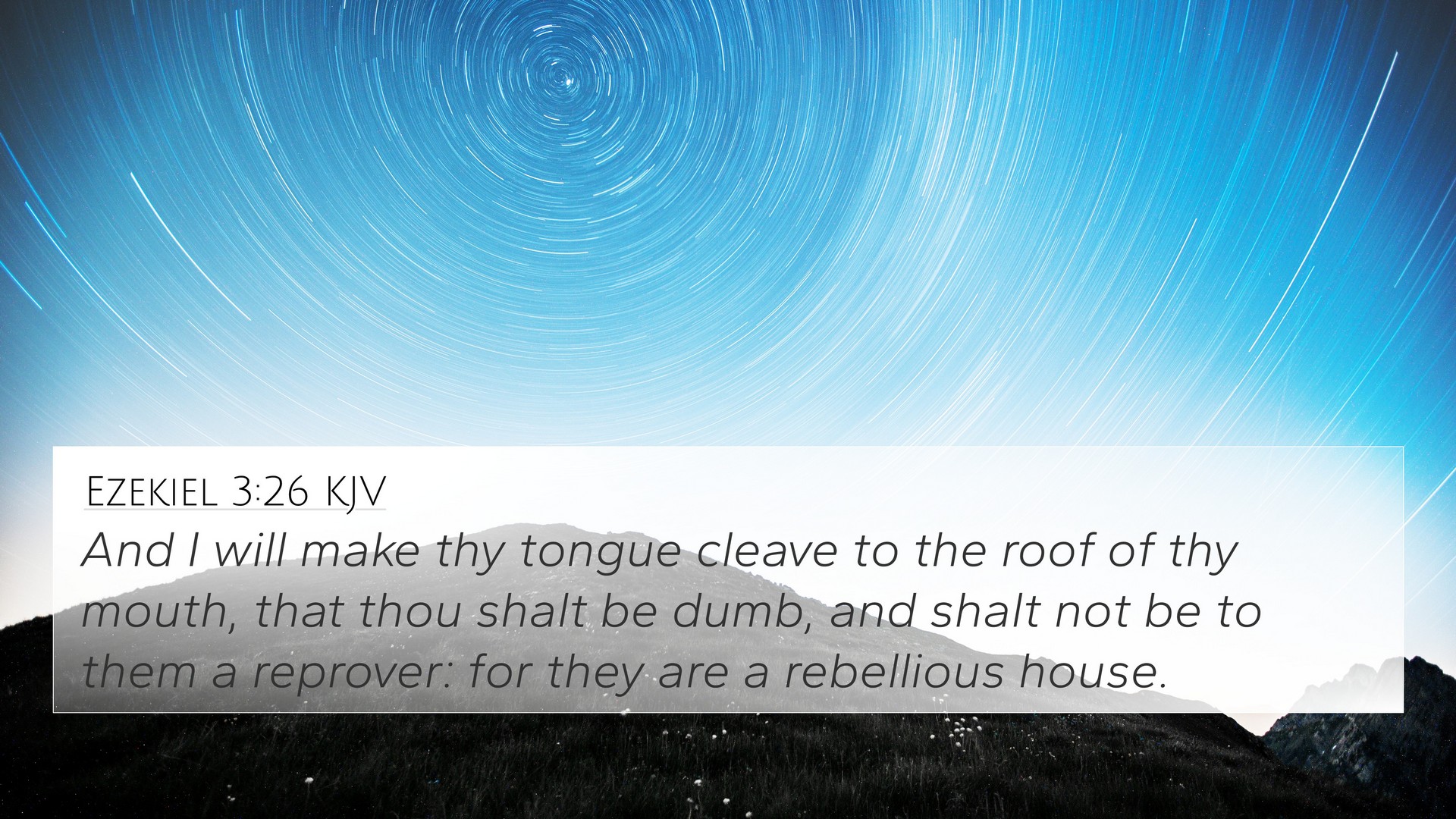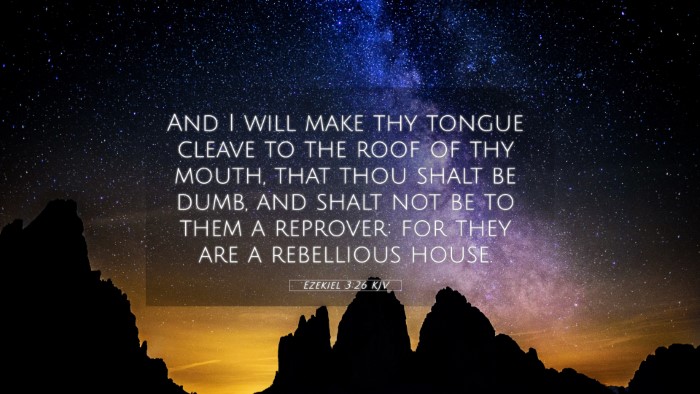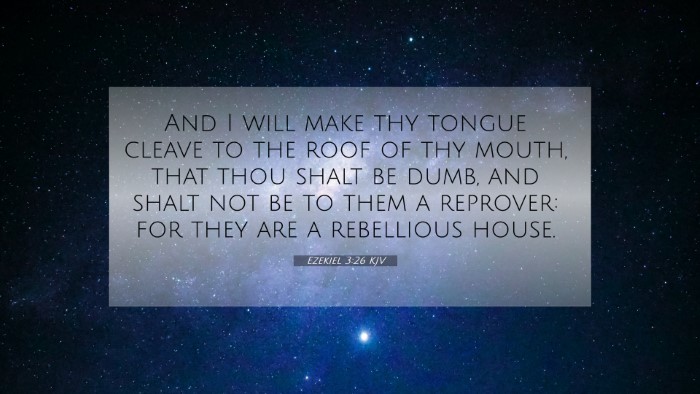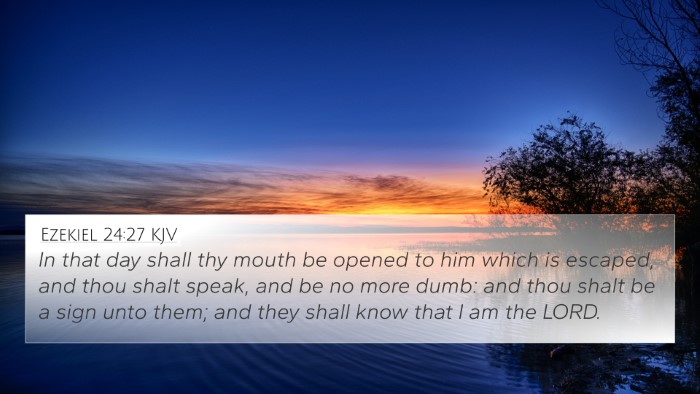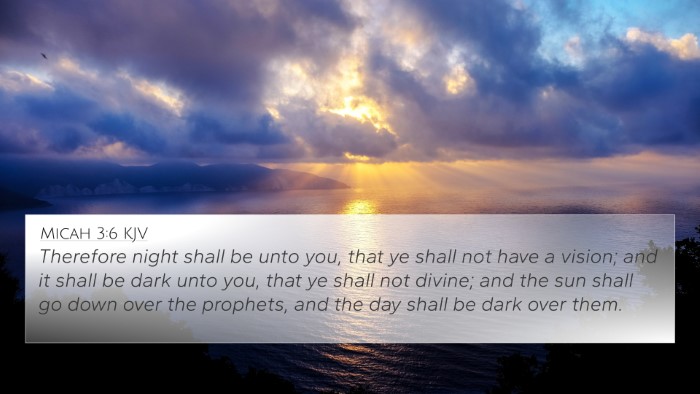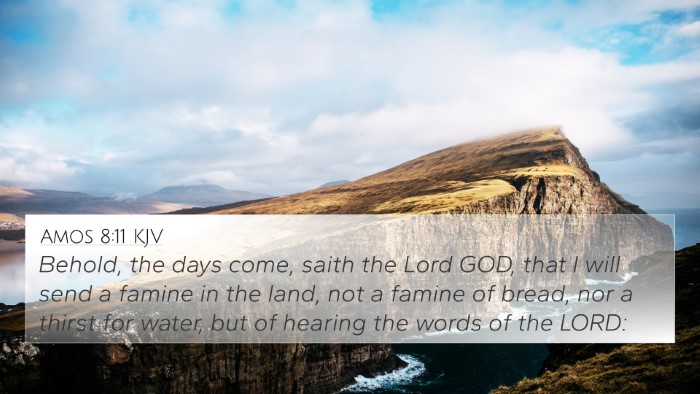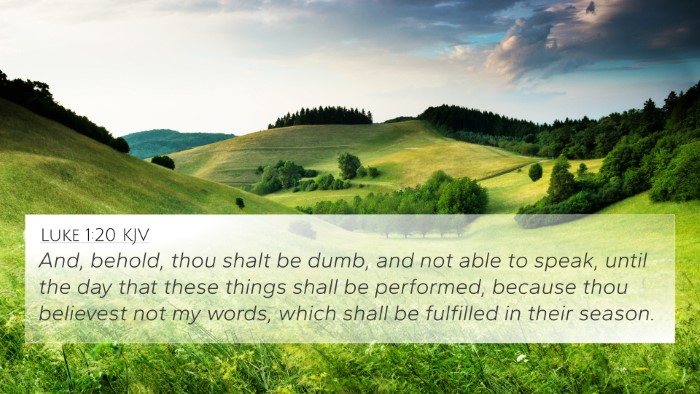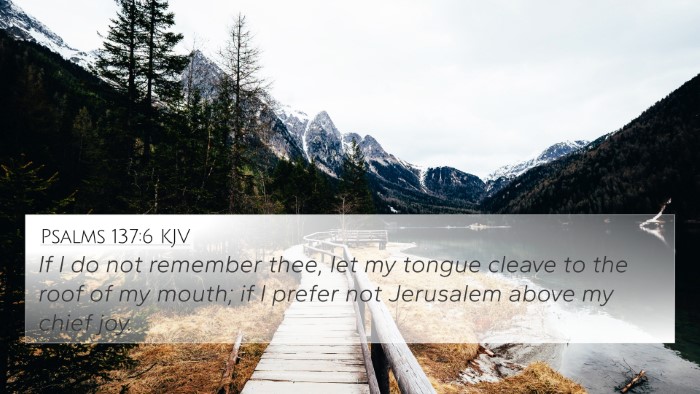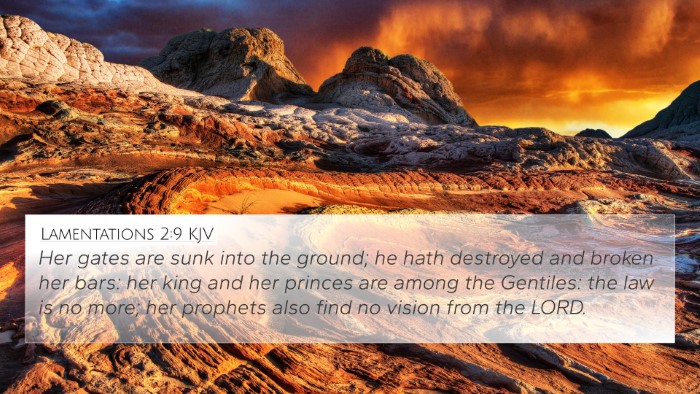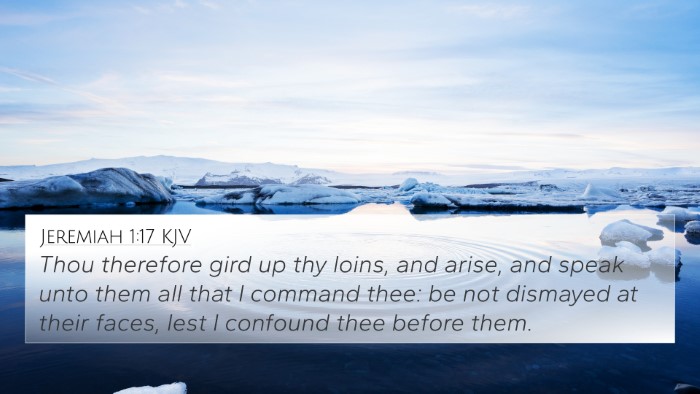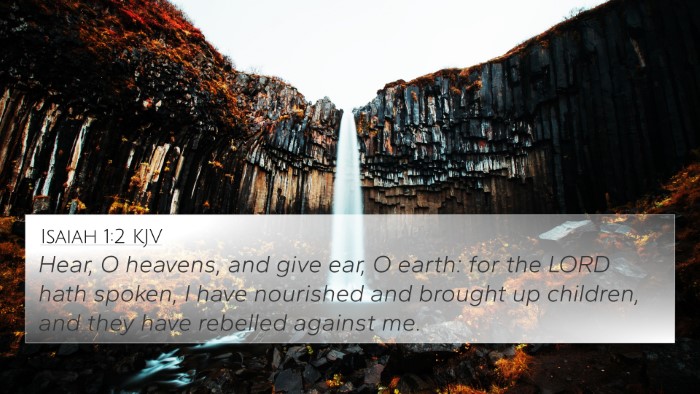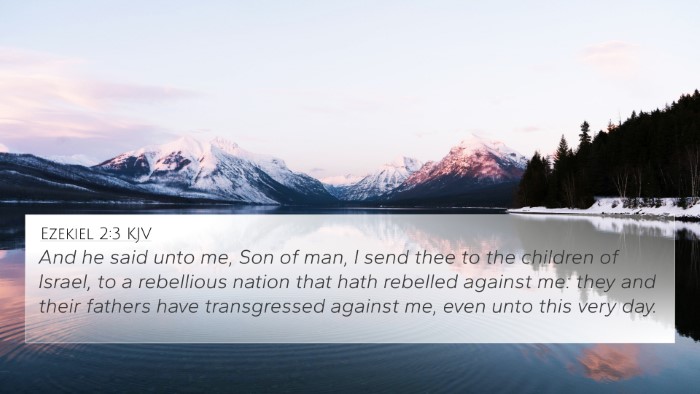Ezekiel 3:26 - Commentary and Meaning
Bible Verse: Ezekiel 3:26 (KJV) - "And I will make thy tongue cleave to the roof of thy mouth, that thou shalt be dumb, and shalt not be to them a reprover: for they are a rebellious house."
Overview of the Verse
Ezekiel 3:26 encapsulates a crucial moment in the prophet's ministry where God restricts his ability to speak in response to the people's persistent rebellion. This verse illustrates the severe consequences of disobedience and the divine strategy to communicate through silence.
Insights from Commentaries
-
Matthew Henry:
Henry emphasizes the symbolic nature of the prophet's silence, suggesting it reflects God's displeasure with the nation's rebellion. He explains how this silencing serves both as a punishment for Israel and a demonstration of God's authority over His messengers.
-
Albert Barnes:
Barnes views this verse as a reflection on the struggles of the prophet amidst a rebellious people. He expounds on the implications of silence, noting that Ezekiel's inability to speak would serve as a sign of judgment, warning them of impending doom, illustrating the severity of their actions.
-
Adam Clarke:
Clarke highlights the significance of communication in the prophet's role, noting that being rendered mute signifies a severe setback in the prophetic mission. He relates this to the broader theme of God's communications with His people, focusing on the consequences tied to their actions.
Thematic Connections
This passage is not isolated; it connects with numerous other scriptures that explore themes of divine communication, judgment, and the role of prophets. The following verses illustrate these themes:
- Jeremiah 1:9: "Then the Lord put forth His hand and touched my mouth." - Acknowledging the divine empowerment of prophets.
- Isaiah 6:10: "Make the heart of this people dull." - Refers to God blinding and closing the ears of a rebellious people.
- Lamentations 3:8: "Also when I cry and shout, He shutteth out my prayer." - Reflects the experience of unanswered prayer due to sin.
- Ezekiel 3:20: "When a righteous man doth turn from his righteousness, and commit iniquity." - Discusses the responsibility of being a watchman and warning others.
- Matthew 15:14: "Let them alone: they be blind leaders of the blind." - A New Testament connection illustrating a similar theme of spiritual blindness.
- Romans 11:8: "God hath given them the spirit of slumber." - Reflects a similar principle of divine judgment leading to a lack of understanding.
- 1 Peter 2:9: "But ye are a chosen generation, a royal priesthood." - Contrasts the chosen people with those who are rebellious.
Inter-Biblical Dialogues
The silence of Ezekiel echoes through many narratives in Scripture, drawing parallels between the prophetic roles across both the Old and New Testaments. The themes of judgment, rebellion, and prophetic responsibility invite comparative analysis. Studying these selected verses reveals both the historical context and theological implications that endure today.
Cross-Referencing Tools
Utilizing tools for Bible cross-referencing can greatly enhance understanding. Resources like a Bible concordance or cross-reference guide provide structure and clarity when exploring complex themes found within Ezekiel 3:26.
Conclusion
In summary, Ezekiel 3:26 serves as a stark reminder of the weight of prophetic authority and the consequences of disobedience. By studying the connections between this verse and others, one can gain a deeper understanding of the divine narrative woven throughout Scripture.
Further Study
Those seeking to explore biblical themes should consider how to effectively use Bible cross-references as part of their study methods, including how to identify connections between the Old and New Testament. This can lead to a more robust comprehension of the Scriptures and their interwoven messages.
